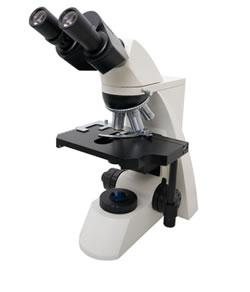Get in touch 0117 325 0526
Get in touch 0117 325 0526
 Summary: If an employee is alleged to have acted dishonestly does this mean that there is a higher threshold in terms of the investigation needed to be carried out by an employer prior to a fair dismissal?
Summary: If an employee is alleged to have acted dishonestly does this mean that there is a higher threshold in terms of the investigation needed to be carried out by an employer prior to a fair dismissal?
No, said the Court of Appeal in Stuart v London City Airport, (accessible here), even in circumstances where, following dismissal, the employee has been found not guilty of theft in a criminal court.
This overturns the EAT’s decision which we reported on in our Newsflash Reasonable investigation: be sure of dishonesty.
Facts: Mr Stuart was employed as a Ground Services Agent at London City Airport (LCA). He had an impeccable record and, in his most recent appraisal, had been graded “excellent”. However, in December 2009 he was dismissed for attempting to steal goods from Nuance, LCA’s duty-free shop.
Mr Stuart picked up a number of items in the duty-free shop. While in the queue to pay, he was beckoned over to a seating area outside the shop by a colleague and went to speak to her, still holding the items. Mr Stuart was then apprehended for taking the goods without payment. A store assistant told the store manager the employee concealed the goods under his jacket before he left the store. This was strongly disputed by Mr Stuart and he also denied taking the items outside of the duty-free area.
The colleague Mr Stuart spoke to was not interviewed as part of the investigation and neither that colleague nor the store assistant gave evidence at the disciplinary hearing. Therefore, Mr Stuart was not given the opportunity of disputing the store assistant’s allegation, or the opportunity of support from the colleague. Also the employer did not consult the available CCTV footage which would have helped decide whether he had hidden the items and was therefore acting dishonestly.
Mr Stuart brought an unfair dismissal claim. The Tribunal held that the investigation carried out was reasonable, and that it was fair for the employer to dismiss Mr Stuart.
Mr Stuart appealed to the EAT, which overturned the Tribunal’s decision on the basis that the employer had reached a decision outside the range of reasonable responses. This was because:
However, the Court of Appeal has now upheld the employer’s appeal. This is on the basis that the Tribunal had been entitled to find that the employer had carried out a reasonable investigation into the alleged theft. The Court held that:
Implications: This case is a helpful look at the level of investigation that an employer should undertake where there is alleged theft or dishonesty by an employee. In particular, it is interesting that because the employer concluded the employee’s main argument was dishonest (i.e. that he claimed not to have left the duty-free department) it was reasonable for the employer not to consider CCTV footage in relation to a different argument. The employer had formed its own reasonable view as to the employee’s credibility and so it did not have to go any further than that.
However, before employers rejoice too much, it is worth noting that even if the Tribunal had reached the opposite conclusion as to the reasonableness of the investigation, as long as it had asked the right questions and come to a considered conclusion, the Court of Appeal would have been unlikely to overturn it.
Tags: investigations, Stuart v London City Airport
Categories: Employment Law

5.0/5